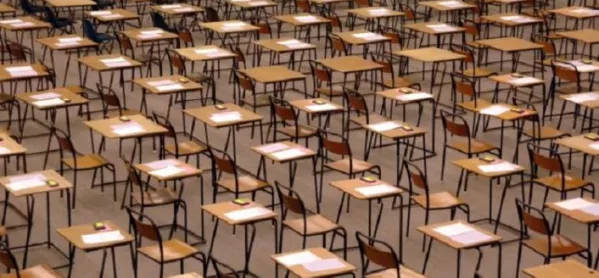Ofqual raised concerns that schools could game the system or submit unconsciously optimistic grades for this year’s GCSEs and A levels, official papers released today reveal.
The board minutes from the regulator also show it was told there was “no way statistically” to confirm whether this “gaming” was happening.
So Ofqual concluded that the best way to address this was to rely on its standardisation algorithm rather than the centre-assessed grades submitted, where possible in large schools.
Revealed: How the summer exams grading fiasco unfolded
Ofqual: Regulator knew GCSE and A level results were not reliable
Background: Ofqual says it is not helpful to reveal which types of school had been most optimistic
The same minutes, from a meeting on 13 May - three months before exam results were published - also show Ofqual had already identified concerns that there were “many uncertainties” in its model for standardising grades when dealing with schools or subject groups with small numbers of pupils.
The minutes say: “Concerns had been expressed regarding unconscious optimism, gaming and individuals or centres that thought that their results should have been better. There was no way statistically to confirm this.
“With large centres, it was proposed that the fairest thing would be to rely on the statistical standardisation model rather than centre assessment grades.
“A board member asked whether there was a possibility to incorporate a sliding scale into the statistical model which would give increasingly greater weight to standardisation, the larger the centres were.”
The minutes show that the board agreed that Ofqual’s standardisation process should give more weight to the historical performance of a school than the assessed grades being submitted “where it will result in students getting the grades that they would most likely have achieved had they been able to complete their assessments in summer 2020”.
In July, Ofqual went on to reveal that certain types of schools and colleges had been more likely to submit “optimistic” grades for this year’s GCSEs and A levels.
However, when asked by Tes, it claimed it would not be “helpful” to provide further details of which type of providers had been most optimistic.
Ofqual has published board minutes for meetings in 2020 today. They show in detail how the fiasco with this year’s exam results unfolded.




